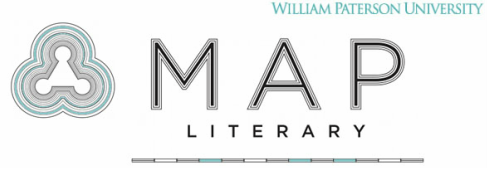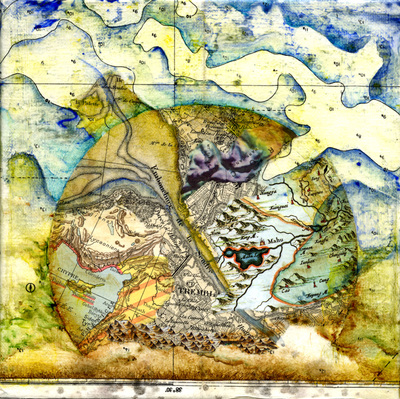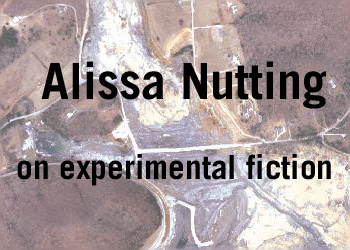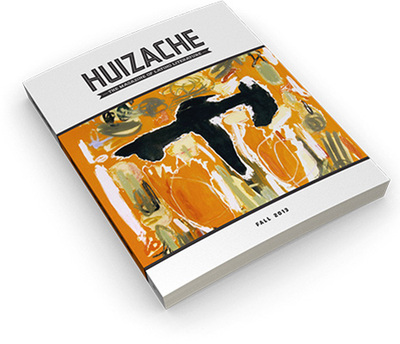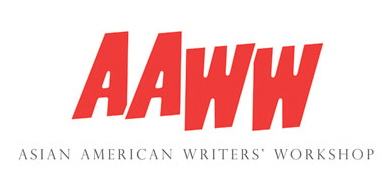Experimental Fiction
Introduction
What is experimental fiction? As Samuel Johnson once said of poetry, “It is much easier to say what it is not. We all know what light is but it is not easy to tell what it is.” The working definition of experimental fiction below attempts a rather straightforward and technical definition with which we can start, even if we will immediately find it insufficient. Experimental fiction is fiction that refuses to stay within the boundaries laid out either by traditional realistic literary fiction or by the standard genres of thriller, mystery, sci-fi, romance and so forth. We might say that experimental fiction is non-escapist literature in that it does not seek to seduce its readers into a dreamy forgetfulness. It is fiction, instead, that often unsettles, that makes one feel uncomfortable or liberated, because it breaks rules and invents new ones. Ideologically, it undermines the common conceptual categories by which we understand and navigate the world; it rejects the normal rhetoric of how we describe things. If realistic literature is a series of check-boxes on a preprinted form—a checkbox for character, a checkbox for exposition, boxes for theme and pathos and storyline—experimental fiction is the guy who can’t fill out the form, who has to create his own checkboxes or add footnotes or perhaps just puts a match to the form and burns it up. Experimental fiction is like a foreigner in a new land—a stranger who doesn’t know the social etiquette.
And indeed, reading experimental fiction can sometimes feel like learning a foreign language. In this sense, I believe that, generally speaking, experimental fiction is difficult—challenging in the way that foreign language learning is challenging, forcing us to come to an understanding of false cognates, to reimagine the feminine and the masculine, to expand our vocabulary and to realize that the world can be imagined in ways other than those by which we are so accustomed to imagining it.
Experimental fiction is a reminder that the universe has not yet been satisfactorily explained. It reminds us of what we do not know; to read it is to remember that we do ourselves a disservice if we limit ourselves only to the stories and only to the storytelling methods that have come before us. It reminds us that life is most pleasant and piquant when we are most curious and inventive. Whether we call it innovative or speculative fiction, slipstream, magic realism, bizarro, the new weird or whatever, experimental fiction is devoted, I would argue, to radical risk-taking—in form and in technique, in content and in theme. It is often absurd and strange, playful with language and sensitive to language’s intricacies; it is often elliptical and disconcerting; it can be perplexing and indeterminate of meaning; it is always potentially volatile and thrilled by potential.
And yet, hovering about, is always this paradox: that as experimental writing becomes institutionalized, as it becomes more widely accepted into the mainstream—can it then still be considered experimental fiction? If one becomes fluent in a foreign language, is it foreign anymore? If experimental fiction grows formulaic, won’t its ability to innovate become deadened?
Definition
Fiction that radically tests the predominant norms of realism (e.g., coherent characters, sequential/logical ordering of events, believable situations, recognizable settings, conventional syntax, readily comprehensible style, stable/consistent point of view, real-world verisimilitude, common sense) whether through structural, stylistic or thematic innovations, including the use of non-sequitur, parataxis, collage, absurd situations, anti-heroes/heroines, ironic bathos, cut-up techniques, stream-of-consciousness, hybrid discourse, genre mashing, alternate cultures, hyperbole, unconventional syntax, fragmented narration, or metafiction; generally related to the literary movements of Dada, Surrealism, Literature of the Absurd, Le Nouveau Roman, Oulipo, magic realism, speculative fiction, fabulist fiction, bizarro fiction. Experimental fiction undermines traditional conceptual categories by which we understand and navigate the world; it is adamant in its belief that the universe has not yet been satisfactorily explained; it makes readers feel as if they were disintegrating….
Notable recent titles: George Saunders, Tenth of December (2013), Diane Williams, Vicky Swanky Is a Beauty (2012), Stacey Levine, The Girl with Brown Fur (2011), Steven Millhauser, We Others (2011), Amelia Gray, Museum of the Weird (2010), César Aira, The Literary Conference (tr. 2010), Ludmilla Petrushevskaya, There Once Lived a Woman Who Tried to Kill Her Neighbor’s Baby (2009), Michael Martone, Racing in Place: Collages, Fragments, Postcards, Ruins (2008), Steve Katz, Kissssss (2007), Gary Lutz, Partial List of People to Bleach (2007), Haruki Murakami, Blind Willow, Sleeping Woman (2007), Karen Russell, St. Lucy’s Home for Girls Raised by Wolves (2006), Roberto Bolaño, 2666 (2004), Victor Pelevin, The Sacred Book of the Werewolf (2004), Ben Marcus, Notable American Women (2002), Rick Moody, Demonology (2001), Aimee Bender, The Girl in the Flammable Skirt (1999), David Foster Wallace, Brief Interviews with Hideous Men (1999).
Other representative titles: Gertrude Stein, Tender Buttons (1914), Robert Desnos, Mourning for Mourning (1924), Virginia Woolf, Mrs Dalloway (1925), Franz Kafka, The Trial (1925), André Breton, Nadja (1928), William Faulkner, The Sound and the Fury (1929), James Joyce, Finnegans Wake (1939), Jean Genet, Our Lady of the Flowers (1943), Samuel Beckett, Molloy (1955), William Gaddis, The Recognitions (1955), Claude Simon, On Flanders Road (1960), Kenneth Patchen, The Journal of Albion Moonlight (1961), Henry Miller, Tropic of Cancer (1961), William S. Burroughs, The Soft Machine (1961), Jorge Luis Borges, Labyrinths (1962), Julio Cortázar, Hopscotch (1963), Italo Calvino, Cosmicomics (1965), Paul Metcalf, Genoa (1965), Donald Barthelme, Snow White (1967), John Barth, Lost in the Funhouse (1968), Kurt Vonnegut, Slaughterhouse-Five (1969), Gilbert Sorrentino, Imaginative Qualities of Actual Things (1971), Walter Abish, Alphabetical Africa (1974), Gabriel García Márquez, The Autumn of the Patriarch (1975), John Hawkes, Travesty (1976), Marianne Hauser, The Talking Room (1976), Robert Coover, The Public Burning (1977), Milan Kundera, The Book of Laughter and Forgetting (1978), Theresa Hak Kyung Cha, Dictee (1982), Jamaica Kincaid, At the Bottom of the River (1983), Ronald Sukenick, The Endless Short Story (1986), Toni Morrison, Beloved (1987), David Markson, Wittengenstein’s Mistress (1988), Milorad Pavic, Landscape Painted with Tea (1988), Maxine Hong Kingston, Tripmaster Monkey: His Fake Book (1989), Kathy Acker, Don Quixote (1994), Lydia Davis, The End of the Story (1994), William Gass, The Tunnel (1995), Angela Carter, Burning Your Boats (c.1995), Mark Leyner, The Tetherballs of Bougainville (1997), W. G. Sebald, Vertigo (tr. 1999).
Contemporary magazines and publishing houses focusing on experimental fiction include Conjunctions, Dalkey Archives, Journal of Experimental Fiction, Fiction Collective Two, Fiction International, New Directions, Pank Magazine, Starcherone Press, Spuyten Duyvil, Sleeping Fish, and Unstuck Books.
Background Reading
Jonathan Franzen, "Mr. Difficult: William Gaddis and the Problem of Hard-to-Read Books" (2002)
Ben Marcus, "Why Experimental Fiction Threatens to Destroy Publishing, Jonathan Franzen, and Life as We Know It: A Correction" (2005)
"The Question of Writing Now: FC2 responds to Ben Marcus" by R.M. Berry, Publisher of FC2. symploke. 14.1-2 (Winter-Spring 2006): 316+.
Gary Lutz, "The Sentence Is a Lonely Place" (2009)
Zinzi Clemmons, "Where Is Our Black Avant Garde?" (2016)
K. W. Colyard, "Ten Experimental Novels" (2017)
Charlotte Ahlin, "Eleven Experimental Short Stories" (2018)
Torsa Ghosal, "How I Learned to Love Experimental Fiction by Seeking Out Books by Women of Color" (2019)
What is experimental fiction? As Samuel Johnson once said of poetry, “It is much easier to say what it is not. We all know what light is but it is not easy to tell what it is.” The working definition of experimental fiction below attempts a rather straightforward and technical definition with which we can start, even if we will immediately find it insufficient. Experimental fiction is fiction that refuses to stay within the boundaries laid out either by traditional realistic literary fiction or by the standard genres of thriller, mystery, sci-fi, romance and so forth. We might say that experimental fiction is non-escapist literature in that it does not seek to seduce its readers into a dreamy forgetfulness. It is fiction, instead, that often unsettles, that makes one feel uncomfortable or liberated, because it breaks rules and invents new ones. Ideologically, it undermines the common conceptual categories by which we understand and navigate the world; it rejects the normal rhetoric of how we describe things. If realistic literature is a series of check-boxes on a preprinted form—a checkbox for character, a checkbox for exposition, boxes for theme and pathos and storyline—experimental fiction is the guy who can’t fill out the form, who has to create his own checkboxes or add footnotes or perhaps just puts a match to the form and burns it up. Experimental fiction is like a foreigner in a new land—a stranger who doesn’t know the social etiquette.
And indeed, reading experimental fiction can sometimes feel like learning a foreign language. In this sense, I believe that, generally speaking, experimental fiction is difficult—challenging in the way that foreign language learning is challenging, forcing us to come to an understanding of false cognates, to reimagine the feminine and the masculine, to expand our vocabulary and to realize that the world can be imagined in ways other than those by which we are so accustomed to imagining it.
Experimental fiction is a reminder that the universe has not yet been satisfactorily explained. It reminds us of what we do not know; to read it is to remember that we do ourselves a disservice if we limit ourselves only to the stories and only to the storytelling methods that have come before us. It reminds us that life is most pleasant and piquant when we are most curious and inventive. Whether we call it innovative or speculative fiction, slipstream, magic realism, bizarro, the new weird or whatever, experimental fiction is devoted, I would argue, to radical risk-taking—in form and in technique, in content and in theme. It is often absurd and strange, playful with language and sensitive to language’s intricacies; it is often elliptical and disconcerting; it can be perplexing and indeterminate of meaning; it is always potentially volatile and thrilled by potential.
And yet, hovering about, is always this paradox: that as experimental writing becomes institutionalized, as it becomes more widely accepted into the mainstream—can it then still be considered experimental fiction? If one becomes fluent in a foreign language, is it foreign anymore? If experimental fiction grows formulaic, won’t its ability to innovate become deadened?
Definition
Fiction that radically tests the predominant norms of realism (e.g., coherent characters, sequential/logical ordering of events, believable situations, recognizable settings, conventional syntax, readily comprehensible style, stable/consistent point of view, real-world verisimilitude, common sense) whether through structural, stylistic or thematic innovations, including the use of non-sequitur, parataxis, collage, absurd situations, anti-heroes/heroines, ironic bathos, cut-up techniques, stream-of-consciousness, hybrid discourse, genre mashing, alternate cultures, hyperbole, unconventional syntax, fragmented narration, or metafiction; generally related to the literary movements of Dada, Surrealism, Literature of the Absurd, Le Nouveau Roman, Oulipo, magic realism, speculative fiction, fabulist fiction, bizarro fiction. Experimental fiction undermines traditional conceptual categories by which we understand and navigate the world; it is adamant in its belief that the universe has not yet been satisfactorily explained; it makes readers feel as if they were disintegrating….
Notable recent titles: George Saunders, Tenth of December (2013), Diane Williams, Vicky Swanky Is a Beauty (2012), Stacey Levine, The Girl with Brown Fur (2011), Steven Millhauser, We Others (2011), Amelia Gray, Museum of the Weird (2010), César Aira, The Literary Conference (tr. 2010), Ludmilla Petrushevskaya, There Once Lived a Woman Who Tried to Kill Her Neighbor’s Baby (2009), Michael Martone, Racing in Place: Collages, Fragments, Postcards, Ruins (2008), Steve Katz, Kissssss (2007), Gary Lutz, Partial List of People to Bleach (2007), Haruki Murakami, Blind Willow, Sleeping Woman (2007), Karen Russell, St. Lucy’s Home for Girls Raised by Wolves (2006), Roberto Bolaño, 2666 (2004), Victor Pelevin, The Sacred Book of the Werewolf (2004), Ben Marcus, Notable American Women (2002), Rick Moody, Demonology (2001), Aimee Bender, The Girl in the Flammable Skirt (1999), David Foster Wallace, Brief Interviews with Hideous Men (1999).
Other representative titles: Gertrude Stein, Tender Buttons (1914), Robert Desnos, Mourning for Mourning (1924), Virginia Woolf, Mrs Dalloway (1925), Franz Kafka, The Trial (1925), André Breton, Nadja (1928), William Faulkner, The Sound and the Fury (1929), James Joyce, Finnegans Wake (1939), Jean Genet, Our Lady of the Flowers (1943), Samuel Beckett, Molloy (1955), William Gaddis, The Recognitions (1955), Claude Simon, On Flanders Road (1960), Kenneth Patchen, The Journal of Albion Moonlight (1961), Henry Miller, Tropic of Cancer (1961), William S. Burroughs, The Soft Machine (1961), Jorge Luis Borges, Labyrinths (1962), Julio Cortázar, Hopscotch (1963), Italo Calvino, Cosmicomics (1965), Paul Metcalf, Genoa (1965), Donald Barthelme, Snow White (1967), John Barth, Lost in the Funhouse (1968), Kurt Vonnegut, Slaughterhouse-Five (1969), Gilbert Sorrentino, Imaginative Qualities of Actual Things (1971), Walter Abish, Alphabetical Africa (1974), Gabriel García Márquez, The Autumn of the Patriarch (1975), John Hawkes, Travesty (1976), Marianne Hauser, The Talking Room (1976), Robert Coover, The Public Burning (1977), Milan Kundera, The Book of Laughter and Forgetting (1978), Theresa Hak Kyung Cha, Dictee (1982), Jamaica Kincaid, At the Bottom of the River (1983), Ronald Sukenick, The Endless Short Story (1986), Toni Morrison, Beloved (1987), David Markson, Wittengenstein’s Mistress (1988), Milorad Pavic, Landscape Painted with Tea (1988), Maxine Hong Kingston, Tripmaster Monkey: His Fake Book (1989), Kathy Acker, Don Quixote (1994), Lydia Davis, The End of the Story (1994), William Gass, The Tunnel (1995), Angela Carter, Burning Your Boats (c.1995), Mark Leyner, The Tetherballs of Bougainville (1997), W. G. Sebald, Vertigo (tr. 1999).
Contemporary magazines and publishing houses focusing on experimental fiction include Conjunctions, Dalkey Archives, Journal of Experimental Fiction, Fiction Collective Two, Fiction International, New Directions, Pank Magazine, Starcherone Press, Spuyten Duyvil, Sleeping Fish, and Unstuck Books.
Background Reading
Jonathan Franzen, "Mr. Difficult: William Gaddis and the Problem of Hard-to-Read Books" (2002)
Ben Marcus, "Why Experimental Fiction Threatens to Destroy Publishing, Jonathan Franzen, and Life as We Know It: A Correction" (2005)
"The Question of Writing Now: FC2 responds to Ben Marcus" by R.M. Berry, Publisher of FC2. symploke. 14.1-2 (Winter-Spring 2006): 316+.
Gary Lutz, "The Sentence Is a Lonely Place" (2009)
Zinzi Clemmons, "Where Is Our Black Avant Garde?" (2016)
K. W. Colyard, "Ten Experimental Novels" (2017)
Charlotte Ahlin, "Eleven Experimental Short Stories" (2018)
Torsa Ghosal, "How I Learned to Love Experimental Fiction by Seeking Out Books by Women of Color" (2019)
